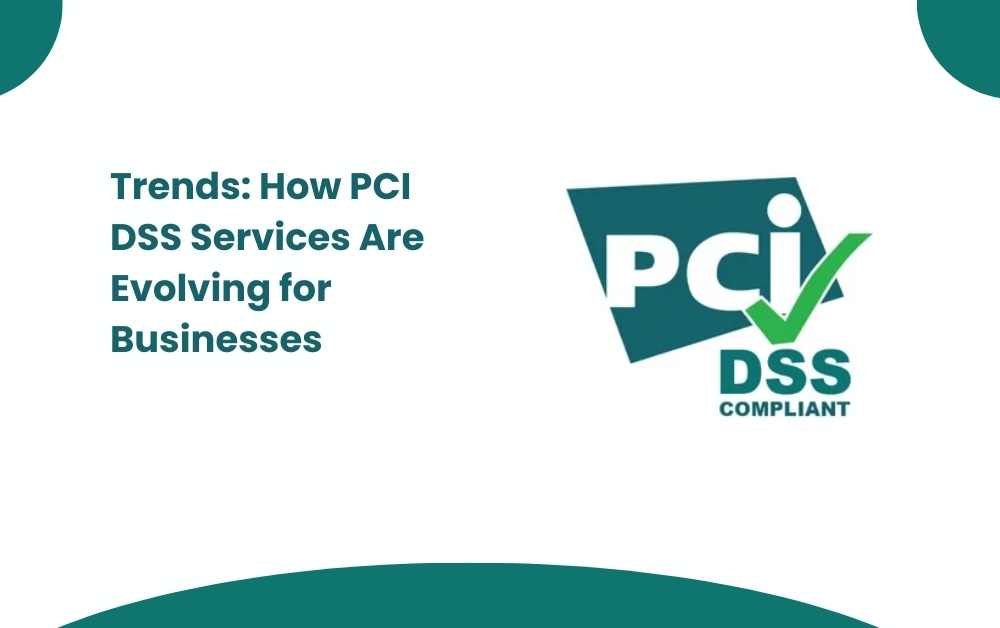
Where transactions happen at the speed of light, safeguarding sensitive financial data is paramount for businesses of all sizes. The Payment Card Industry Data Security Standard (PCI DSS) is a set of security standards designed to ensure that all companies that accept, process, store, or transmit credit card information maintain a secure environment. As cyber threats continue to evolve, so do the services and solutions aimed at helping businesses comply with PCI DSS requirements. In this blog post, we’ll explore the latest trends in PCI DSS services and how they are evolving to meet the changing needs of businesses.
Understanding PCI DSS
Before delving into the trends, let’s first understand what PCI DSS is all about. PCI DSS is a set of security standards established by major credit card companies such as Visa, Mastercard, American Express, Discover, and JCB International. These standards aim to ensure the secure handling of credit card information to prevent data breaches and fraud.
PCI DSS compliance is mandatory for any business that processes credit card transactions, regardless of its size or industry. Non-compliance can result in hefty fines, legal penalties, and damage to the reputation of the business.
The Evolution of PCI DSS Services
Over the years, PCI DSS services have evolved to keep pace with emerging technologies and evolving cyber threats. Here are some of the key trends shaping the evolution of PCI DSS services for businesses:
1. Enhanced Security Measures
With cyber attacks becoming more sophisticated, there is a growing emphasis on implementing enhanced security measures to protect sensitive financial data. PCI DSS service providers are offering advanced encryption technologies, multi-factor authentication, and real-time monitoring to detect and mitigate security threats proactively.
2. Cloud-based Solutions
As businesses increasingly migrate their operations to the cloud, PCI DSS service providers are offering cloud-based solutions that allow businesses to achieve and maintain compliance more efficiently. Cloud-based PCI DSS services offer scalability, flexibility, and cost-effectiveness, making them an attractive option for businesses of all sizes.
3. Simplified Compliance Management
Achieving and maintaining PCI DSS compliance can be a complex and time-consuming process. To alleviate this burden, PCI DSS service providers are offering simplified compliance management solutions that automate various aspects of the compliance process. These solutions streamline compliance assessments, audits, and reporting, allowing businesses to focus on their core operations.
4. Integration with Existing Systems
Many businesses already have existing security systems and infrastructure in place. PCI DSS service providers are offering solutions that seamlessly integrate with these existing systems, minimizing disruptions to business operations and reducing implementation costs. Integration with existing systems also ensures that businesses can leverage their investments in security technologies effectively.
5. Focus on Education and Training
Human error remains one of the leading causes of data breaches and security incidents. PCI DSS service providers are placing a greater emphasis on education and training to ensure that employees are aware of security best practices and compliance requirements. Training programs cover topics such as password management, phishing awareness, and secure handling of sensitive information.
6. Continuous Compliance Monitoring
Achieving PCI DSS compliance is not a one-time event; it requires ongoing efforts to maintain compliance in the face of evolving threats and regulatory changes. PCI DSS service providers are offering continuous compliance monitoring solutions that provide real-time visibility into security posture and compliance status. These solutions enable businesses to identify and address compliance issues promptly.
7. Enhanced Reporting and Analytics
Effective reporting and analytics are essential for understanding security risks, identifying trends, and making informed decisions. PCI DSS service providers are offering enhanced reporting and analytics capabilities that provide businesses with actionable insights into their security posture and compliance status. These capabilities enable businesses to prioritize remediation efforts and allocate resources more effectively.
Conclusion
As cyber threats continue to evolve, businesses must stay vigilant in protecting sensitive financial data. PCI DSS services play a crucial role in helping businesses achieve and maintain compliance with security standards. By embracing the latest trends in PCI DSS services, businesses can enhance their security posture, mitigate risks, and build trust with their customers. As we move forward, it is essential for businesses to stay informed about emerging technologies and best practices in PCI DSS compliance to stay ahead of the curve.
Note :- For more stories and info like this, www.incnewsblogs.com is the place to be.





